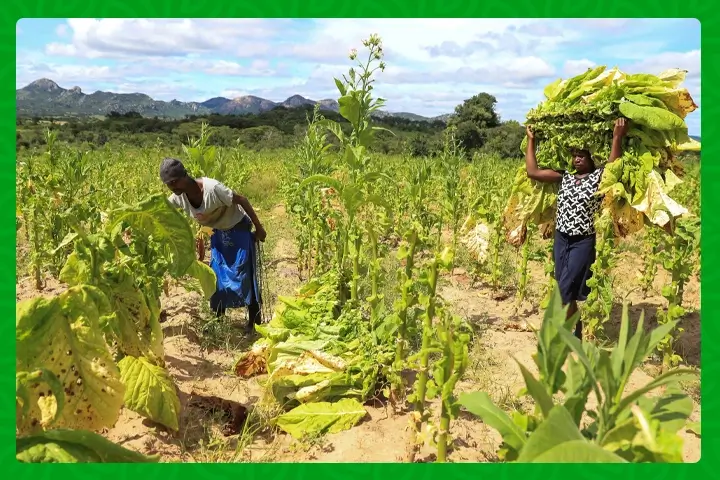
In the vast tobacco fields of Zimbabwe, a troubling reality unfolds – the contract system, hailed as a beacon of empowerment, has transformed into chains of dependency for the very farmers it was meant to uplift. The Zimbabwe Tobacco Growers Association (ZiToGA) raises a poignant cry, unveiling the harsh truths behind this purported empowerment.
Contract farming, once envisioned as a partnership of mutual benefit between farmers and tobacco buyers, has devolved into a mechanism of subjugation. Under this agreement, farmers receive inputs from contracting companies, with the promise of purchasing their entire tobacco yield at competitive prices. Yet, the bitter irony reveals itself as farmers find themselves trapped in a cycle of indebtedness and reliance.
As the specter of the El Nino phenomenon looms over the nation, exacerbating already precarious conditions, contract farmers find themselves teetering on the brink of despair. Erratic rainfall patterns, emblematic of this climatic disruption, spell doom for harvests, plunging farmers into a quagmire of uncertainty.
ZiToGA’s lamentation echoes the anguish of countless farmers as they grapple with dwindling yields and mounting debts. The association bemoans the harsh reality that instead of fostering autonomy, the contract system perpetuates reliance on credit, shackling farmers to a perpetual cycle of indebtedness.
Moreover, the contracting companies, driven solely by profit motives, exploit the vulnerability of farmers. Manipulative pricing during the marketing season strips farmers of their rightful earnings, thwarting their aspirations of self-sufficiency. The callous indifference towards the welfare of farmers lays bare the stark truth – the contract system is a guise for corporate self-enrichment at the expense of the very backbone of Zimbabwe’s agricultural landscape.
The insidious erosion of farmer autonomy is further compounded by the forex retention policies, which disproportionately burden the already beleaguered farmers. With production costs predominantly in US dollars, the nominal forex retention ratio proves to be a paltry concession in the face of parallel market pressures. ZiToGA’s impassioned plea for a revision of these policies underscores the urgent need to safeguard the livelihoods of farmers from economic exploitation.
In this crucible of adversity, ZiToGA implores the government to wield its authority as a shield against exploitation. Monitoring mechanisms must be instituted to ensure compliance with regulations, shielding farmers from the predatory practices of contracting companies. Furthermore, the provision of interest-free loans and the revitalization of the auction system are heralded as catalysts for farmer empowerment, offering avenues for market diversification and financial liberation.
However, true empowerment transcends mere economic measures; it necessitates comprehensive support encompassing skills development and training. ZiToGA’s fervent appeal for governmental assistance in this regard underscores the imperative of equipping farmers with the tools for self-sufficiency and ownership of the production process.
In conclusion, the veil has been lifted, revealing the stark reality of the contract system’s betrayal of Zimbabwe’s tobacco farmers. As the echoes of ZiToGA’s plea reverberate, a clarion call resounds – it is incumbent upon us to dismantle the chains of enslavement and usher in an era of genuine empowerment for Zimbabwe’s agricultural guardians. Only then can the promise of prosperity be realized, not as a distant dream, but as an immutable reality etched into the fabric of Zimbabwe’s agricultural landscape.
Original Article written by TAFADZWA MHLANGA
Stay updated with the latest farming tips and agriculture industry news from Africa by subscribing to our newsletter. Don’t miss out on valuable insights and updates. Follow us on Twitter, LinkedIn, and Facebook to join our farming community and stay connected with us.



















